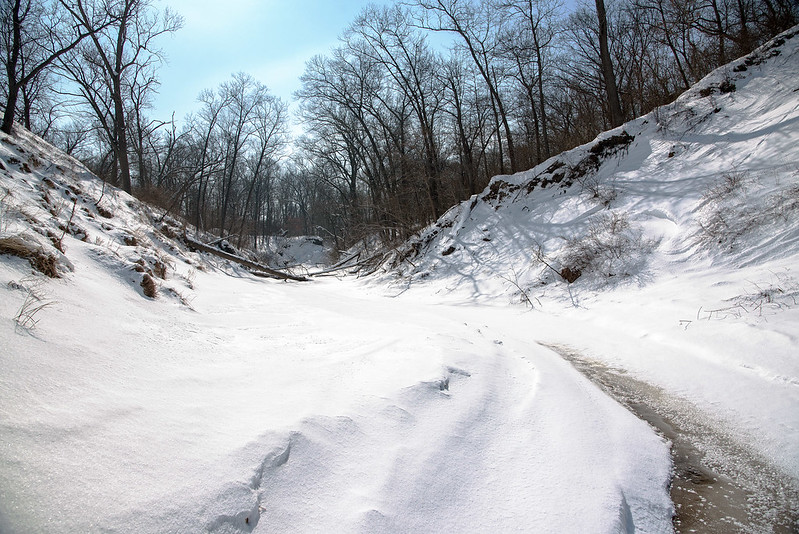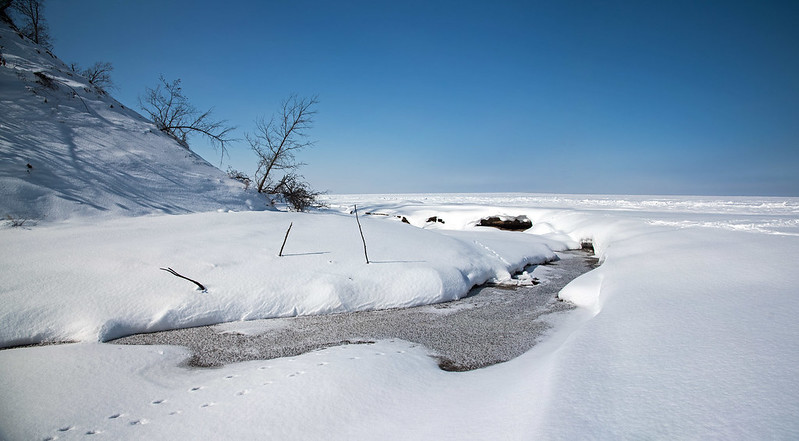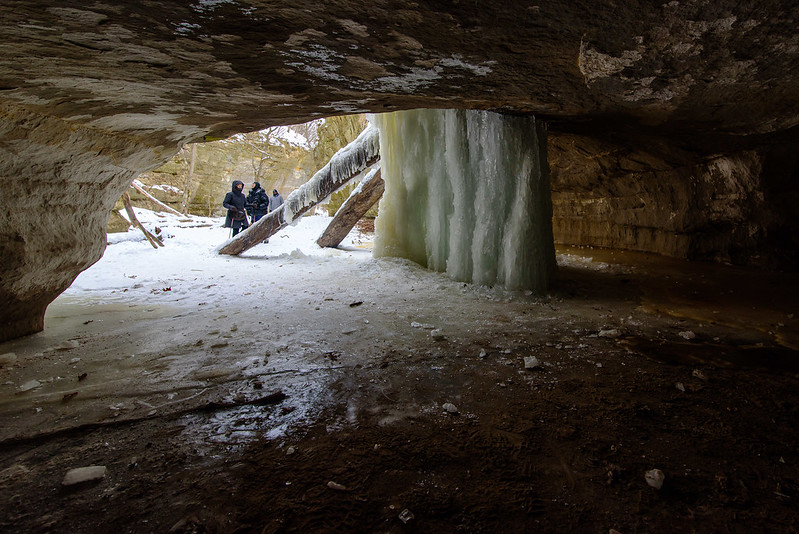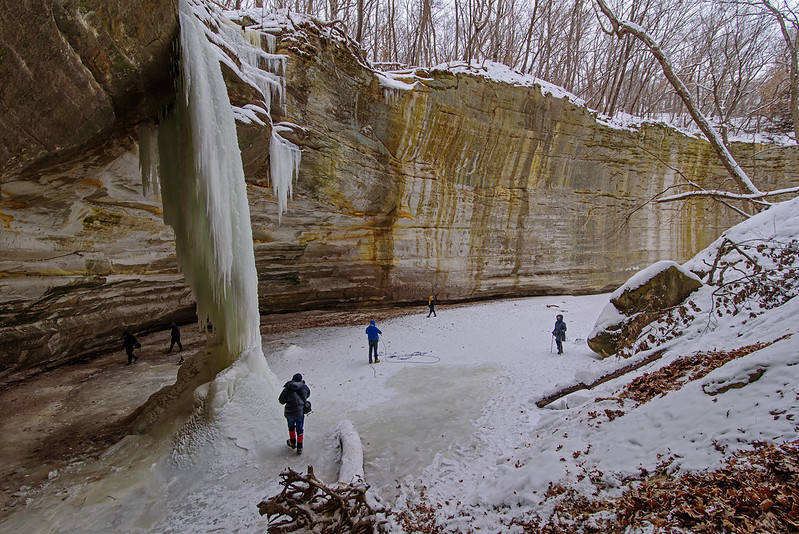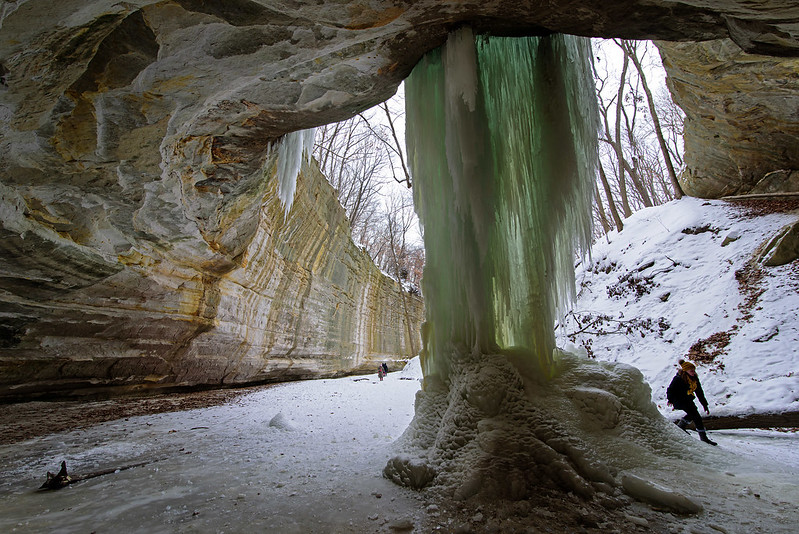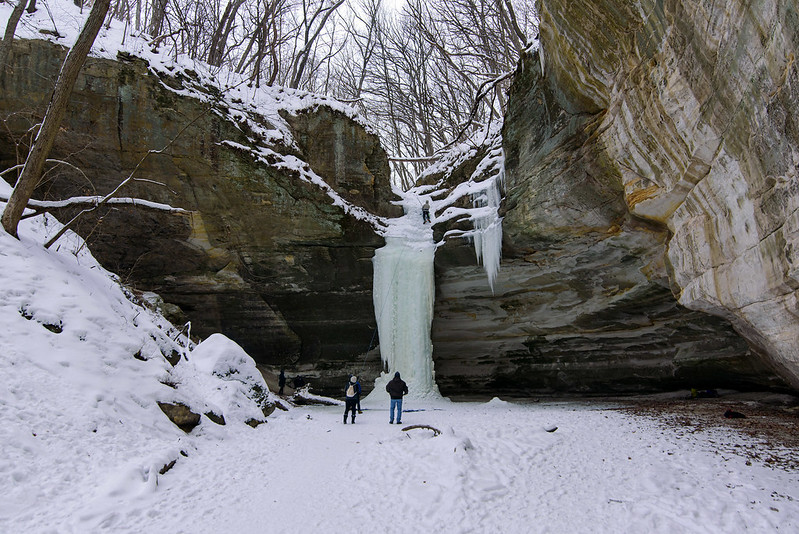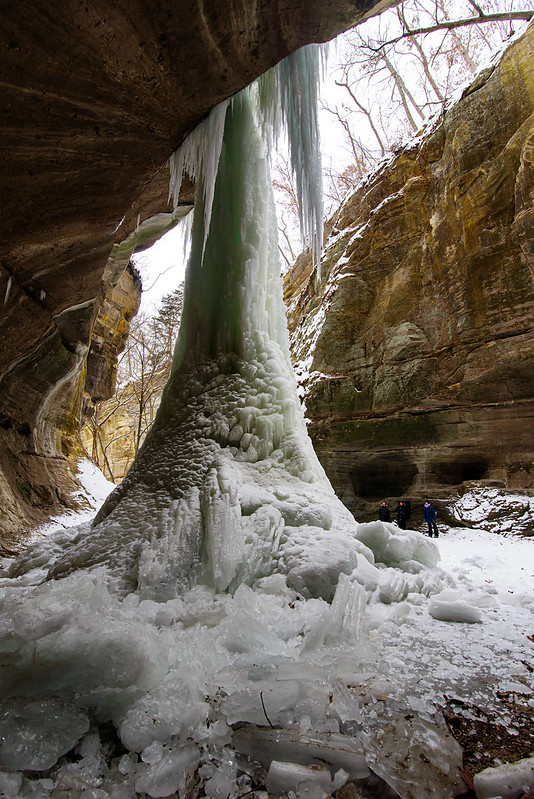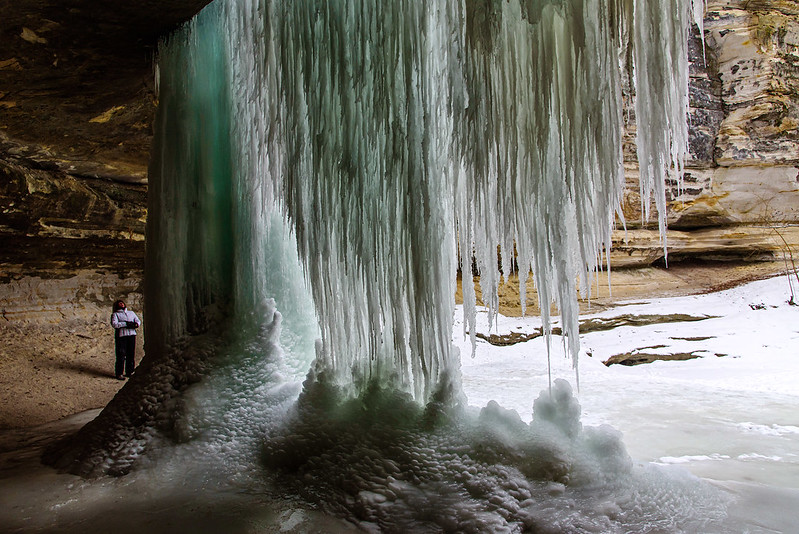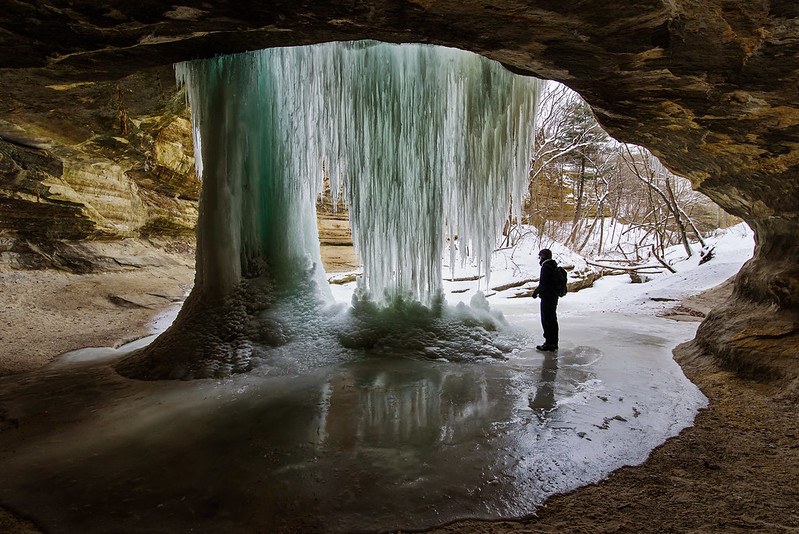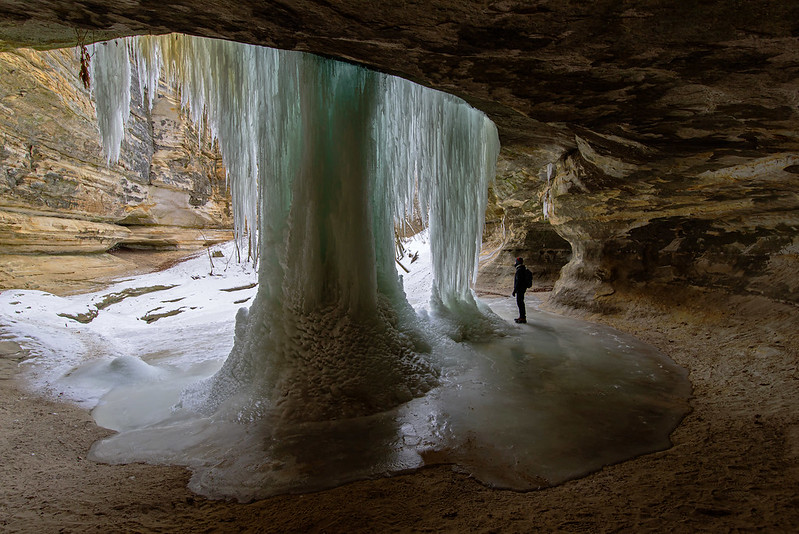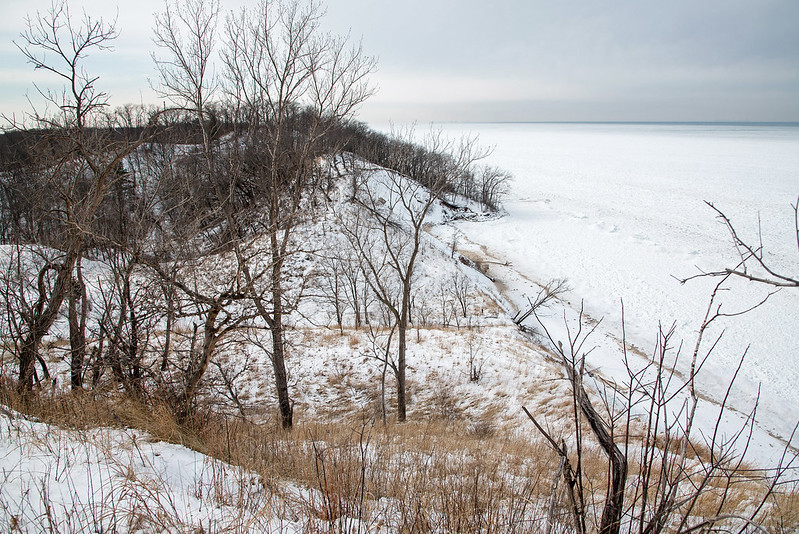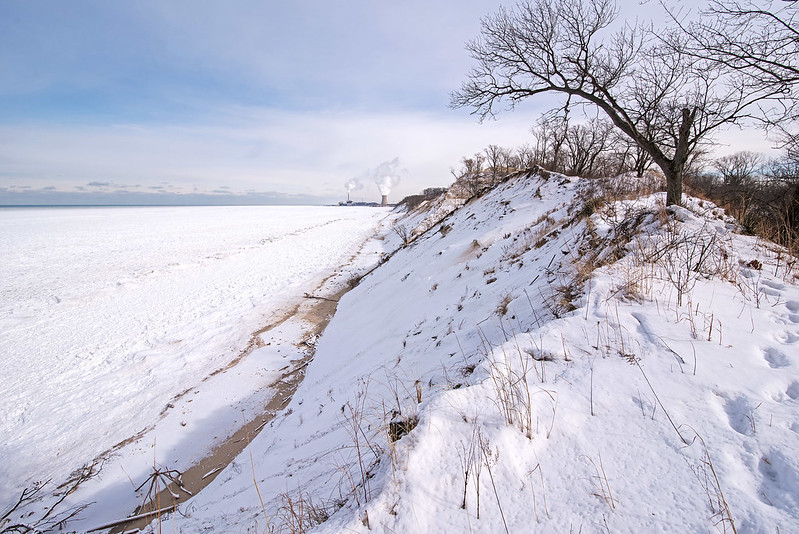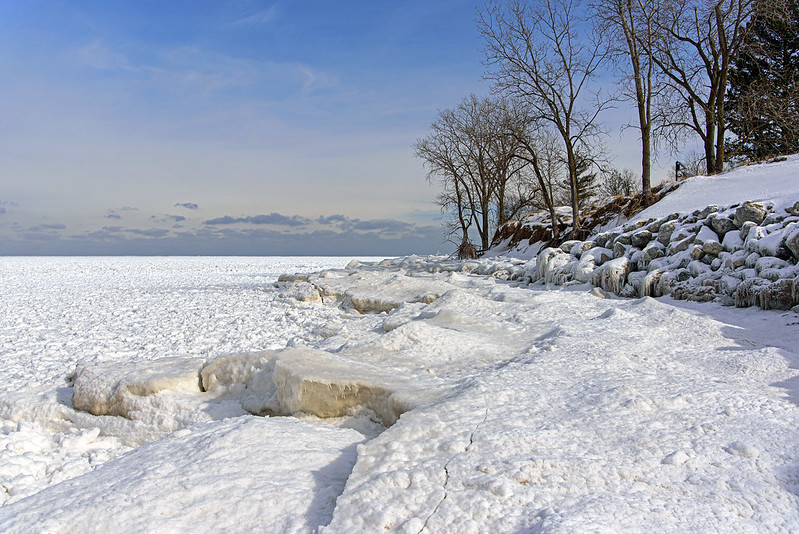
One week ago, Lake Michigan was liquid as far as the eye could see. Only a small amount of ice was seen along the shore, and it barely extended five feet out into the water. In only a few days, the ice has formed, and extends almost as far as the eye can see. This can happen rather quickly, but usually begins in January and takes a few weeks before Lake Michigan take on the look of the arctic.
Temperatures overnight were down to 2 degrees above zero Fahrenheit, and by this time in the morning, they climbed all the way up to 8 degrees! This was the beginning of our hike on the Lake Michigan shore, we ultimately hiked 5 miles total on three beaches. Surprisingly, dressed appropriately, we were quite comfortable.

The pier was very icy from last week's winter storm, so we were unable to venture any closer. At least that's what the signs told us, so we didn't bother to test if anyone would come out to tell us to get off the pier. We were not only dressed for the weather, but we also wore spikes on our boots to dig into the ice to prevent us from slipping. As I've done for many years, we could have walked all the way to the lighthouse safely, but the cameras on the pier may have falsely alerted the officials, so we figured it was best to stay off.
Still, there's something about the hike to the end of the icy pier that attracts me to the lakeshore every winter. If you haven't been to the shore of Lake Michigan in the dead of winter, make this the year you start the tradition. There are many areas where you can safely bring the entire family to view the frozen lake, some only 100 feet from the parking lot. We enjoy these access points too, but if you get down to the beach and hike a mile or two on the shoreline (on the sand NOT on the ice), you will be treated to a lonely, barren, beautiful landscape that is unlike anything you've experienced. And, most times you will not encounter another person in your entire field of vision, so stop, look around, and listen, take it all in.



